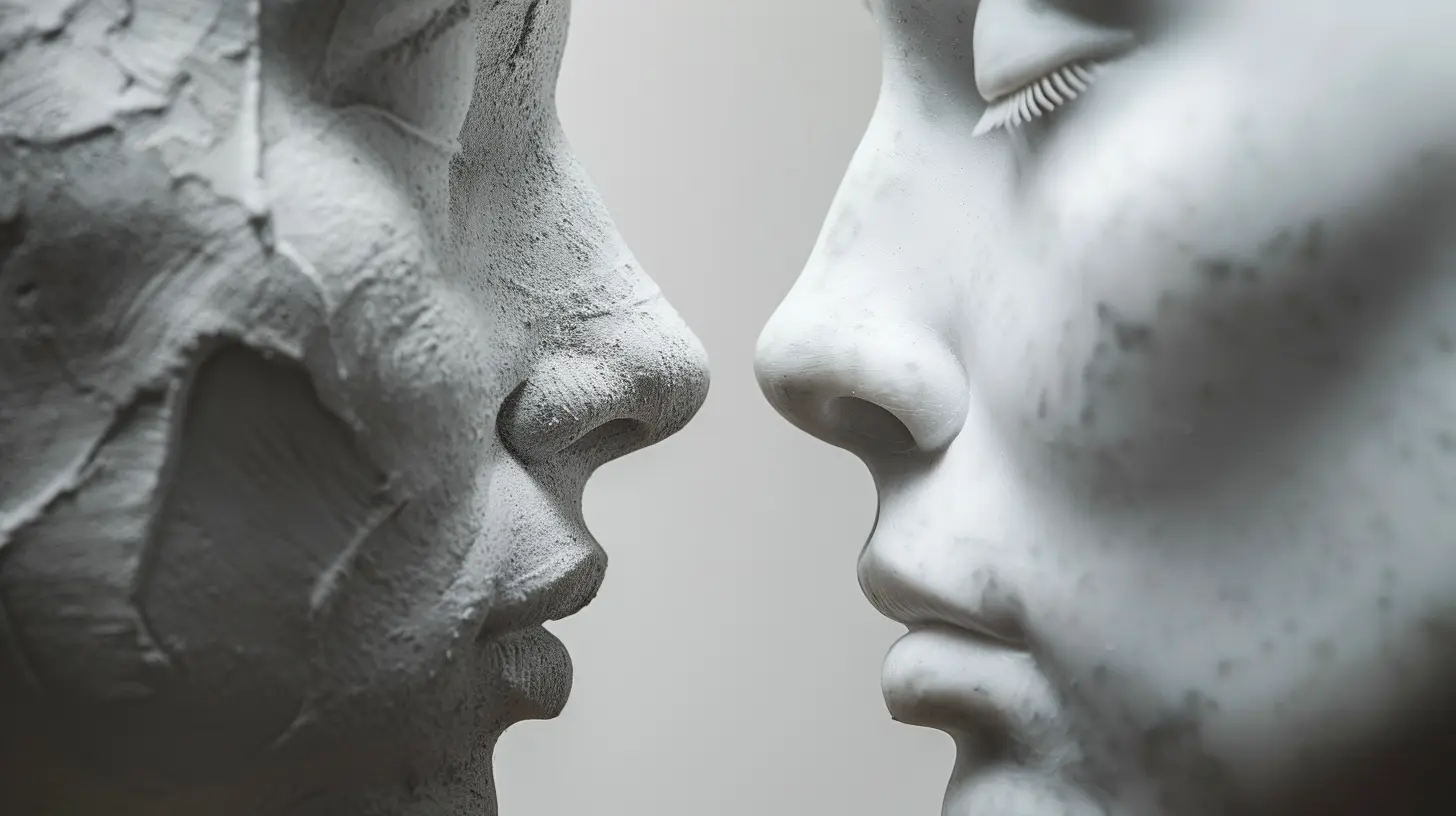The Role of Empathy in Managing Relationships with Narcissistic Individuals
15 April 2025
Dealing with narcissistic individuals can be emotionally exhausting, especially if they play a significant role in your life—be it a partner, family member, friend, or colleague. Their need for control, lack of genuine emotional reciprocity, and tendency to manipulate can make relationships feel one-sided and draining.
So, how do you navigate such relationships without losing yourself in the process? The answer lies in empathy—but not the kind that allows them to take advantage of you. Instead, it's about developing healthy empathy that lets you understand them without compromising your own well-being.
Understanding Narcissism: Why Do They Act This Way?
Before diving into the role of empathy, let's take a step back and understand narcissism itself. People often throw around the term “narcissist,” but true narcissistic personality disorder (NPD) is more than just self-centered behavior.Traits of Narcissistic Individuals
- Lack of empathy – They struggle to recognize or care about others' feelings.- Need for admiration – Constant validation fuels their self-worth.
- Manipulative tendencies – They twist situations to serve their needs.
- Grandiosity – They believe they’re superior and deserve special treatment.
- Fragile self-esteem – Beneath the confidence is often deep insecurity.
Narcissists often develop these traits as a defense mechanism, usually stemming from childhood wounds. While this doesn't excuse harmful behavior, it can help us approach them with a more strategic mindset.
The Paradox of Empathy: A Double-Edged Sword
Empathy is one of the greatest human strengths. It helps us form deep connections, understand others, and foster compassion. But when dealing with narcissists, empathy can sometimes work against us—leading to emotional exhaustion, manipulation, and an endless cycle of trying to "fix" someone who isn’t willing to change.So, how do you balance being empathetic without being exploited? The key is healthy empathy with boundaries.
How to Use Empathy Effectively When Dealing with a Narcissist
1. Recognize Their Limitations
It's easy to assume that if you just love them enough or explain things differently, they'll change. But narcissists operate within a different emotional framework. They lack the same emotional depth that allows for genuine self-reflection. Expecting them to suddenly develop self-awareness is like expecting a fish to climb a tree—it’s just not how they’re wired.2. Stop Taking Their Actions Personally
Narcissists are driven by their own fears, insecurities, and needs. Their behavior isn’t about you—it’s about them. When they lash out, manipulate, or gaslight, it's often their defense mechanism kicking in. By understanding that their actions stem from their own struggles, you can detach emotionally and protect your own mental health.3. Set Clear Boundaries Without Guilt
Empathy should never mean sacrificing your own peace. If a narcissist constantly criticizes or invalidates you, it's crucial to set firm boundaries.- Limit the time and energy you invest in them.
- Use clear and assertive communication.
- Stick to your boundaries even when they try to guilt-trip you.
Think of boundaries like a fence around your emotional garden—you get to decide who enters and how they behave.
4. Accept That You Can't "Fix" Them
Many empathetic individuals have a natural urge to heal or "save" others. But narcissists don’t want to be saved. Change has to come from within, and most narcissists lack the genuine self-awareness needed to embark on that journey. The sooner you accept that their transformation isn't your responsibility, the more peace you'll find.5. Reframe Interactions by Managing Expectations
Instead of expecting deep emotional reciprocity, approach interactions with a narcissist with realistic expectations.- Keep conversations surface-level when possible.
- Avoid deep emotional disclosures.
- Accept that they might never offer the validation or support you hope for.
This mindset shift prevents unnecessary disappointment and frustration.
6. Develop Emotional Detachment
While you can be compassionate towards a narcissist’s struggles, you don't have to absorb their emotions. Detaching doesn't mean being cold—it means protecting your inner peace by not letting their actions dictate your self-worth.Picture them as a storm: you can acknowledge its existence without stepping directly into the rain.
7. Prioritize Your Own Emotional Health
The more you invest in self-care, the stronger your emotional resilience becomes. Surround yourself with supportive people, engage in activities that bring you joy, and reaffirm your own worth outside of any relationship with a narcissist.
What If the Narcissist Is Someone You Can't Avoid?
Sometimes, walking away isn't an option. If it's a family member, co-worker, or spouse with whom you share responsibilities, cutting ties may not be feasible. In such cases:- Use the Gray Rock Method – Keep conversations dull and unemotional to reduce their ability to manipulate you.
- Have an Exit Strategy – If interactions become toxic, have a plan to remove yourself from the situation.
- Seek Outside Support – Therapy or support groups can help you navigate difficult relationships.
Long-term exposure to narcissistic individuals can take a toll on one's mental health, so having strategies in place is crucial.
Conclusion: Protect Your Empathy, Protect Yourself
Empathy is a beautiful gift, but it must be used wisely—especially when dealing with narcissistic individuals. Understanding their behavior can help you navigate interactions without internalizing their toxicity.Instead of trying to change them, prioritize your emotional health, maintain strong boundaries, and remind yourself that you deserve relationships that are mutual, supportive, and fulfilling.
Because at the end of the day, true empathy isn’t about tolerating toxic behavior—it’s about recognizing when to walk away for the sake of your own well-being.
all images in this post were generated using AI tools
Category:
Personality DisordersAuthor:

Paulina Sanders
Discussion
rate this article
4 comments
Yolanda Kirk
In the dance of hearts and shadows cast, Empathy's light can guide us fast. Amidst the echoes of self-obsession, A tender touch may quell aggression. For in understanding, we find our grace, Navigating storms in a complex space— A bridge to heal, a path embraced.
May 7, 2025 at 3:28 AM

Paulina Sanders
Thank you for your beautifully crafted thoughts! Your words capture the essence of empathy's power in fostering understanding and healing, especially in challenging relationships.
Julianne Pope
Fascinating insights! How can empathy truly help?
April 23, 2025 at 3:35 AM

Paulina Sanders
Thank you! Empathy can help by fostering understanding, reducing conflict, and creating a more compassionate approach to interactions, which can lead to healthier relationships even with narcissistic individuals.
Josephine McGehee
Empathy is a powerful tool; it can transform challenging relationships and foster understanding, healing, and growth.
April 21, 2025 at 2:52 PM

Paulina Sanders
Absolutely! Empathy can create bridges even in difficult relationships, promoting healing and understanding essential for managing interactions with narcissistic individuals.
Sylvan McCullough
Ah, empathy and narcissists—a match made in therapy! It's like trying to play chess with a pigeon. No matter how skilled you are, they'll strut around, knock over pieces, and poop on the board. Good luck managing that relationship!
April 20, 2025 at 2:31 PM

Paulina Sanders
Thank you for the insightful analogy! Managing relationships with narcissists can indeed feel like an uphill battle, but understanding their behavior and our own responses is key to navigating those challenges.



